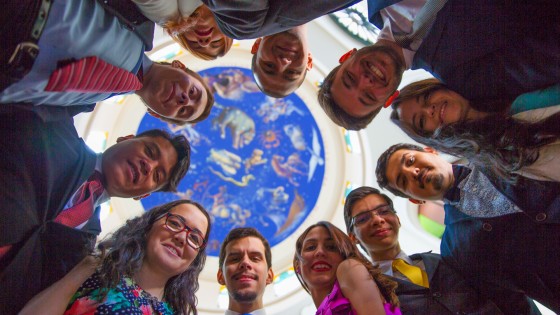CORREG Constitutional Reasoning Research Group
In all of today's constitutional cultures, there are concerns about the lack of coherent and informed judicial decisions. Even in countries where constitutional review has been a highly esteemed institution with a long history, the reasoning practice of the courts, and especially the high courts, has been the center of academic attention and public criticism. Additionally, in many countries, the widely recognized importance of giving a consistent and well-founded justification is absent. The opportunity to raise awareness of the importance of reasons and excuses in the legal decision-making process rests with academics, who may confront judges with errors or inconsistencies in their reasoning practices. The most effective method of democratic control of the courts is advertising. Public pressure can bring about change if there is an ongoing public debate, supported by responsible and professional opinions about the practice of the courts. However, an in-depth analysis of the reasoning and interpretation of the jurisprudence of the courts is necessary for an effective and honest public debate. This area is still poorly investigated.
The CONREASON project aspires to a systematic and comprehensive investigation of judicial reasoning, by analyzing and comparing the practice of the constitutional courts of 18 countries around the world. The results of the collaboration of academics from various countries, hosted by the Institute for Legal Studies of the Center for Social Sciences at the Hungarian Academy of Sciences, and by the Max Planck Institute for Comparative Public Law and International Law, will be published in Cambridge University Press.
To include Ecuador in this global constitutional reasoning map, the CORREG project aims to start developing a similar scientific and theoretically based study, focused on the most important decisions of the Constitutional Court of Ecuador.
The CORREG project will explore the reasons that the Constitutional Court uses to justify its decisions, the type of interpretation that the Constitutional Court uses most frequently, the most salient features of the reasoning of the Ecuadorian Constitutional Court, the general patterns that can be outlined as a consequence of these results. To ensure the availability of our research, increase levels of publicity, and thereby contribute to the quality of public debate, we will publish our results online. Our intention corresponds to the underlying purpose of the project, which is to contribute to the common good through honest and responsible public debate.
Approach
To increase the authenticity of our results, the CORREG project - based on the CONREASON project methodology - uses both descriptive methods based on empirical and theoretical data and prescriptive analysis. We are going to investigate decisions of the Constitutional Court related to all areas of law, trying to select those that have greater relevance for the investigation. The CORREG project emphasizes not only the strictly legal and constitutional aspects, as it extends to political, philosophical, and language aspects. Consequently, we intend to cooperate with other relevant professors and universities in this project.
The CORREG project aims to operate in two languages: English and Spanish. On the one hand, Spanish is essential to collect and investigate the decisions of the Constitutional Court, and it also contributes to the constitutional dialogue, which is mainly carried out in Spanish. However, in the academic area, research may have greater potential if it is also published in English. By using English as a working language, we can enter comparative constitutional discourse more effectively, and Ecuador can gain more representation.
CORREG activities
CORREG activities 2017
February 2, 2017 - Conference on contemporary issues of Ecuadorian constitutionalism
February 23, 2017 - CORREG General Committee, second-semester planning
CORREG activities 2016
September 26, 2016 - CORREG founding meeting
October 17, 2016 - CORREG Constitutional Reasoning Conference
December 2016 - CORREG General Committee, first semester results
Expert opinions
A fundamental part of our methodology is to request 5 experts in Ecuadorian constitutional law to collaborate with their valuable opinion on the list of 40 decisions that have been selected for analysis.
- Opinion of Juan Carlos Riofrío (pdf)
- Opinion of Juan Pablo Aguilar (pdf)
- Opinion of Hernán Pérez (pdf)
- Opinion of Paul Córdova (pdf)
-
Opinion of Ximena Endara (pdf)
Decisions list
CORREG's original list of decisions
The final list of CORREG decisions, after the review of constitutional experts.

